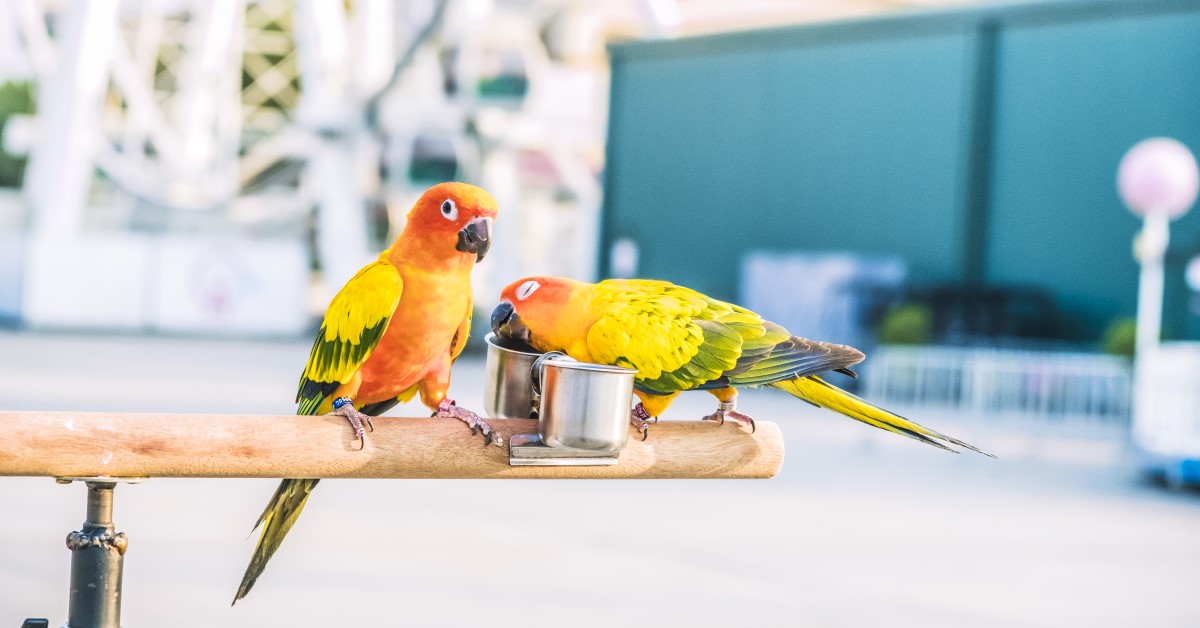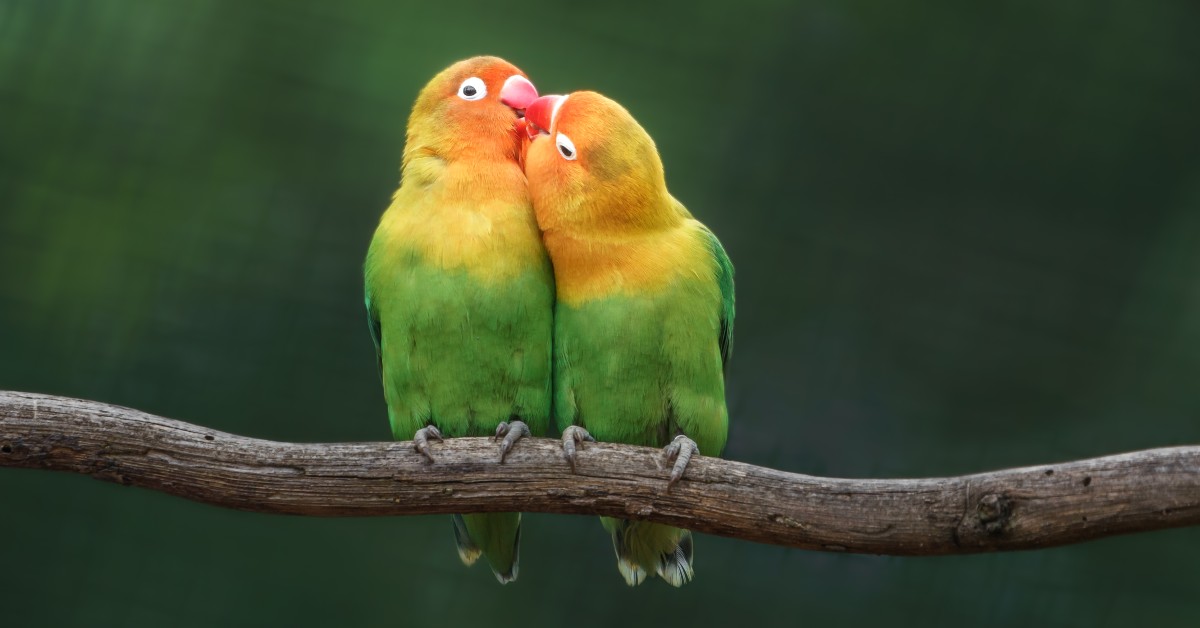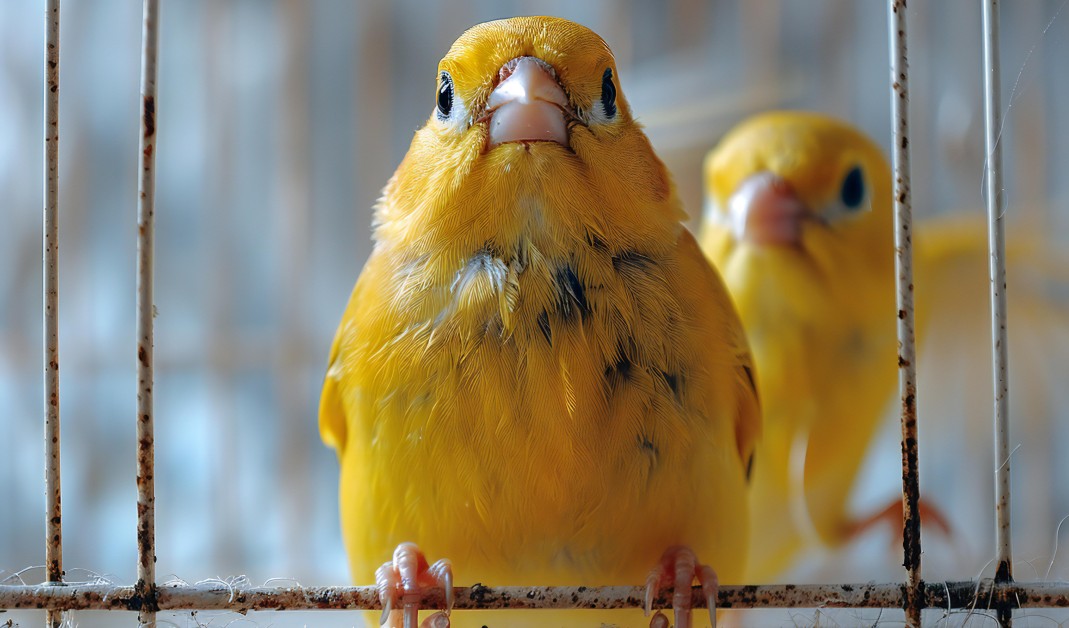Meet the Conure!
The conure is a long-lived, beautiful, and intelligent bird that can make an excellent pet for people who suffer from traditional pet allergies or live in an apartment.

Birds can make an excellent, caring, and loving companion for those who suffer from pet allergies or have restrictions prohibiting certain pets in their condo or apartment. Adding a bird to your family can not only give you years of love and affection but can be a rewarding bonding experience. The conure is a popular pet bird for many families because of its high intelligence, beautiful coloration, caring disposition, and long lifespan. Below, let’s dive in deeper to understand why the conure is such a fantastic pet for families.
Temperament
Conures, in general, are caring, loving, and intelligent birds. There is some difference in temperament between the various conure species. Green-cheek conures, a popular bird featured in pet stores, tend to be the most affectionate and happily bond with all family members. This bird loves to exercise and enjoys spending hours outside the cage with its owner for enrichment.
Like the maroon-bellied and the sun conure, other conures tend to be less affectionate than the green-cheek. These birds also enjoy plenty of mental and physical stimulation but often prefer just one family member to become their favorite companion. The maroon-bellied conure tends to get pecky, especially when it is unhappy with the way it's being handled.
Most conures are relatively quiet birds and are not prone to loud squeaks and shrieks. Like the maroon-bellied conure, some species may be louder compared to other conures. The conure can learn to say a few words and tricks, but usually, the conure is limited to about a 15 to 20-word vocabulary.
Various Breeds
One of the most attractive features of the conure is the wide variety of breeds available within the species. Both the green-cheek and the maroon-bellied conure are commonly found in pet stores. Although these are two different bird breeds, pet stores often confuse the two. These breeds feature bright and bold colors that can include green, red, white, and even yellow.
One of the most stunning conures available in the pet trade is the sun conure. This bird features bright gold, orange, red, and green coloration. Although sometimes it may be possible to find the sun conure in a pet store, prospective owners usually have to seek out a specialized conure breeder to get this type of bird.
Other possible conure breeds include:
- Jenday conure
- White-eyed conure
- Red-masked conure
- Nanday conure
- Queen of Bavaria conure
Colors for this beautiful bird range from orange and red tones to gorgeous greens. Some conures even have gray, white, or black feathers, offering a range of colors and patterns in this beautiful species.
Diet
Conures can be extremely sensitive to calcium and vitamin A deficiencies, so it is essential to have a balanced diet for your bird. Giving your bird the best diet possible will not only keep your bird happy, but it will keep your bird healthier for a longer time.
Your conure’s diet should include mostly pellets. Modern pellets are made to optimize calories with the right beneficial vitamins and nutrients. Be sure your conure’s pellets are about 75% pellets.
Another 20% of your conure’s diet should include rich, green, leafy vegetables. Conures also appreciate the occasional fruit treat. Conures love spinach, broccoli, papaya, and pears. Try to avoid pale-colored vegetables like iceberg lettuce and celery. These vegetables tend to have more water content than nutrition value and add little to the bird’s daily nutritional needs.
Habitat
Generally speaking, for a breed of parrot, the conure doesn’t need a large cage. Of course, different conure species will have different cage requirements, but as a general rule, it is safe to stay with a 30 inches high, 24 inches wide, and 24 inches deep cage. This cage size should give your bird plenty of room to fly around, exercise, and stay happy. If you are housing more than one conure together, it is a good idea to have a larger cage to give plenty of room to both birds.
The conure is a very active bird and craves plenty of attention and exercise. This bird will need plenty of time outside the cage each day to stretch its wings and exercise its brain. Remember to provide plenty of mental and physical stimulation for your conure to keep it happy.
Benefits of Owning a Conure
The conure is a loving, energetic, and enjoyable pet. This bird is a popular pet for many reasons and is often chosen over other available pet bird species. The conure is exceptionally long-lived, with some breeds living to be 30 years of age or older. Other comparable breeds, like a parakeet, may only live to be ten years of age.
Additionally, the conure makes an ideal apartment pet because it is hypoallergenic, relatively quiet, and lives in a small to medium-sized cage. The conure is happy to have daily exercise time spent outside its cage. The conure has a variety of available breeds in the pet industry, with several offering bold and vibrant coloration.
Most importantly, the conure is a loving member of the family. This bird can form lasting bonds with all members of the family. This bird is intelligent and caring and can quickly learn to perform a handful of tricks or learn to speak a few words. Adding a conure to your family is a wonderful choice and will provide several years of lasting companionship.
Ready to start saving money on pet wellness care?
Then take a look at Mint Wellness, the pet wellness plan that provides fast reimbursement on routine pet care. Save on vaccinations, wellness exams, preventatives, dental, and more!
Learn More


